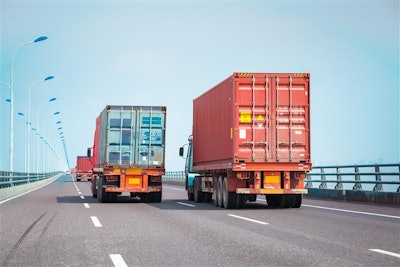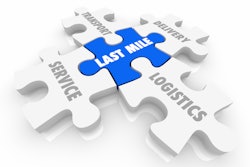
As inflation continues to plague people and businesses nationwide, the recent spike in gas prices has wreaked havoc on the pocketbooks of fleet owners and consumers. Considering the supply chain riddled with shortages across the globe, business operators are feeling the burn as their bottom line is strained. With gas prices being one of the top expenses for fleets, managers are searching for ways to save money where they can. One sector of solutions that can help immensely is GPS tracking and telematics. Here are some considerations for how GPS tracking and telematics will bolster your fuel efficiency:
Idle time reduction and scheduling optimization
Because fuel costs have such a detrimental impact on fleets, it’s important to understand how much fuel your fleet is burning at any time – even when the vehicle is idling.
According to the U.S. Department of Energy, it is estimated that an idling vehicle can waste nearly a gallon of fuel each hour. Using GPS tracking and telematics, use cases have shown that over the course of a month, drivers were wasting about 200 gallons of fuel as their vehicle idled. Upon using tracking and telematics to analyze the data, fleet managers were able to decrease vehicle idle time by 30% over the course of three months.
Keeping drivers on track through route planning is another way to effectively save money on fuel. By creating a routing plan via GPS tracking, managers can determine ahead of time the stops a vehicle will make. In doing this, they prevent drivers from taking the long way, ensuring goods and services make it to customers in a timely manner. This can also include creating a schedule to put drivers on the roads when traffic is typically lighter. Rush hour traffic leaves drivers spending a lot of time in stop-and-go traffic, which can burn an unnecessary amount of fuel.
Time and money are too valuable across the supply chain. Reducing idling and long travel times, along with creating an effective schedule, will benefit time management and financial impact.
Encourage safe driving
Driving behavior is the single most consequential contributor to fuel efficiency with up to a 35% difference in fuel consumption between a good and bad driver, according to a U.S. Department of Transportation report. The way in which a driver accelerates, brakes and speeds can all lead to the wastefulness of gas. In addition, drivers who speed have a higher likelihood of crashing. Whether resulting in fines or leaving a vehicle out of commission, reckless driving can impact any company’s reputation and expenses.
By implementing telematics, managers can easily identify which drivers are exhibiting signs of unsafe driving, and then use that data to coach safer driving behavior and set reasonable goals for improvement.
Execute regular maintenance to eliminate downtime
Aside from human assets, vehicles are the most important element of any successful fleet business. Keeping trucks and vans running at peak performance entails keeping vehicles well maintained; it’s one of the most basic ways those across the supply chain can be proactive in saving fuel. Vehicles simply do not perform as well when they have old or malfunctioning parts, so keeping track of when vehicles are due for maintenance and executing this in a timely fashion is extremely important. GPS tracking and telematics can help keep tabs on when a vehicle is due for a number of services, including brake inspections, oil changes, smog checks, and transmission flushes.
Having reliable tires is just as critical to the healthy operation of a fleet, so they should always be part of a regular maintenance routine. That schedule should include checking tire pressure, monitoring tread depth, performing regular rotations and balance, and checking the alignment every 80,000 to 100,000 miles.
Avoiding unnecessary weight on a vehicle shouldn’t be overlooked when it comes to tire health, vehicle upkeep, and fuel economy. An overloaded vehicle can shorten the life of a tire by causing more wear and tear, quicker deflation, and the need for earlier maintenance.
For each extra pound that is added to a vehicle, it can also contribute in the long term to a vehicle requiring more fuel. It only takes 100 pounds to reduce fuel economy by 1%. That number might seem small, but over time this will become an unnecessary, avoidable expense.
Efficiency for the long term
There doesn’t seem to be much relief in our near future regarding fuel costs but utilizing a GPS tracking and telematics system is the best tool fleet managers can arm themselves with today. Assisting with enhanced safety and efficiency, these tools will lead to better productivity, reduced costs, and an overall boost to your bottom line.

















![Pros To Know 2026 [color]](https://img.sdcexec.com/mindful/acbm/workspaces/default/uploads/2025/08/prostoknow-2026-color.mduFvhpgMk.png?ar=16%3A9&auto=format%2Ccompress&bg=fff&fill-color=fff&fit=fill&h=135&q=70&w=240)